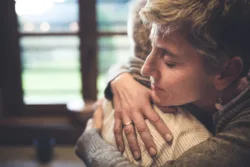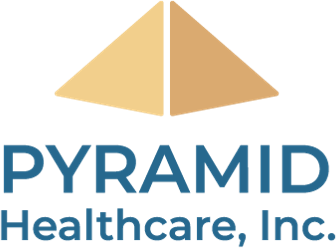How to Help Your Loved One Avoid Substance Abuse

So you’re out to dinner with some friends and family, and notice one of your loved ones is ordering their third drink — while everyone else is still on their first.
Moments like these can prick us with concern as we wonder if they’re okay, both in the moment and overall if this is a habit and if we should say something. Addiction has become an alarmingly common problem in the United States, and many of us already know someone who struggles with substance abuse.
We can be hyper-aware when it comes to recognizing similar signs and symptoms in others, which can be difficult to navigate but can also potentially save someone’s life. Knowing how you can help prevent substance abuse from developing or progressing isn’t always straightforward though.
In this article, we’re going to walk you through the steps you can take to engage in your role in substance use prevention, not only for yourself but loved ones too.
Substance misuse definition
Substance use refers to the casual or recreational (responsible) use of substances in a way that isn’t dangerous to their health or that reaps negative consequences in their lives.
Substance misuse refers to using substances — drugs, alcohol, legal or illegal — in an inappropriate way, or consuming doses that are generally considered to be higher than what’s recommended. Substance misuse can refer to both legal and illegal substances, from alcohol and prescription medication all the way to cocaine and heroin.
Substance misuse vs abuse
Though the terms “substance misuse” and “substance abuse” can be used interchangeably in certain circumstances, they usually describe two different patterns of unhealthy substance use.
Substance misuse is when an individual consumes substances in unhealthy amounts, frequently or regularly, in a way that brings harm to themselves, their health and others.
Substance abuse, on the other hand, typically refers to a physical or psychological dependence on drugs or alcohol and is characterized by a more severe and chronic pattern of unhealthy substance use. Substance abuse can result in significant impairment and damage to a person’s health, overall well-being, relationships and more, which is why professional help is often needed to help individuals regain balance in their lives.
Substance use prevention
The difficult truth to accept is you can only truly prevent substance abuse for yourself, but you can’t really prevent the development of another person’s substance abuse. We’re only in charge of our own actions; even if someone does what we want, it’s because they’ve chosen to do so.
Realizing this enables you to support your loved one without putting unreasonable pressure on yourself to be the sole reason they never develop a substance use disorder. Below are some of the best ways you can do your part in aiding in substance use prevention.
One of the most effective ways to inspire loved ones to be responsible with their substance use is by leading through your own example. Honestly assess your own relationship with substances, recreational or prescription, before making comments (even helpful ones) about someone else’s.
Educating yourself and encouraging others to educate themselves as well (or offering knowledge when relevant) can make it easier to understand and identify substance abuse in yourself or others.
Being sure to surround yourself with people who genuinely care about your health, well-being, and personal and professional success, can be a powerfully positive influence in a person’s life.
Additionally, learning how to manage stress, develop healthy coping mechanisms and fill your time with more productive, healthy and enjoyable activities can be a great way to remind yourself or others that you don’t need substances to enjoy a full life.
People are going to make their own choices, and sometimes those choices are harmful to themselves or others. If you think you or someone you love might have a substance use disorder or addiction take action today.
Reach out for help today
Here at Pyramid Healthcare, your safety, comfort and long-term recovery are our top priorities. We’re a leading organization in client-focused care and are dedicated to identifying your individual needs and goals so as to help you achieve a successful recovery.
Struggling with a substance use disorder can be isolating; reaching out for help can feel extremely uncomfortable, but we encourage you to reach out anyways. Our team is composed of compassionate professionals who are ready and willing to help you regain your health and well-being.
Contact us today and learn more about what the next best steps for you are.








